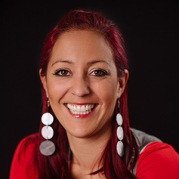
This November, the third annual Feedback Summit will focus on the power of connections. We’ll be sharing experiences, knowledge, and skills by exploring feedback loops as tools for responsiveness, accountability, and amplifying impact. As a feedback-focused community, we believe the people know what’s best for them, and that programs and policies should follow their lead in setting priorities and evaluating impact.
At Feedback Summit 2017, we celebrate and interrogate the immense power of constituent-driven feedback loops, and the powerful connections between constituents and other stakeholders that drive forward progress and improvement. Whether it’s collaboration at the organization level, between datasets, or among individuals, we believe that now is the time to learn how organizations can unleash the power of constituent feedback by supporting constituent connection, radically rethinking how constituent voice is utilized – or maybe even by getting out of the way entirely.
We can amplify the success of our sector and the number of closed feedback loops through these strong connections. Now is the time to reimagine how constituent voice functions within and around our sector.
Highlights: Summit 2017
Missing the Feedback Summit? Read a recap of what happened on Day 1 and Day 2 of the event, what we learned this year, and how we’ll be responding to the community’s feedback in the coming months.
Thursday, November 2
- 8:00 – 9:30am Breakfast and Socialize
- 9:30 – 9:50am Welcome (Main Hall)
- 9:50 – 10:20am Lightning Interview: Mimi Ito (Main Hall)
- 10:30 – 11:30am Sessions
- The Art of Honoring Voice: How to close the loop through dialogue and use of feedback data (Room 2A)
- 11:45 – 12:15pm Lunch
- 12:15 – 1:15pm Plenary: The Future of Feedback-Driven Philanthropy (Main Hall)
- 1:30 – 2:30pm Sessions
- Introduction to Lean Data (Room 2A)
- An Ear for High Performance (Room 2B)
- Data Interoperability: Huh? (Room 3E)
- 2:30 – 3:00pm Networking Break
- 3:00 – 4:00pm Sessions
- Feedback-Powered Impact Investing (Room 2C)
- Acting on Feedback: Why is organizational change so freakin’ hard? (And what can we do about it?) (Room 3D)
- 4:15 – 5:15pm Face Off: Shifting Power to People (Main Hall)
- 5:15 – 5:30pm Summary and Evaluate (Main Hall)
- 5:30 – 7:00pm Reception (Upstairs 3D & 3E)
Friday, November 3
- 8:00 – 9:30am Breakfast and Socialize
- 9:30 – 9:55am Lightning Interview: Narayan Adhikari (Main Hall)
- 9:55 – 10:05am Welcome (Main Hall)
- 10:15 – 11:15am Sessions
- M&E&F: The Three Legged Stool (Room 3D)
- 11:30 – 12:00pm Lightning Interview: Fagan Harris (Main Hall)
- 12:00 – 12:30pm Lunch
- 12:30 – 1:30pm Plenary: How Big is the Tent? (Main Hall)
- 1:45 – 2:45pm Sessions
- Flipping feedback to feedforward: putting decision making and resources in the hands of the end user (Room 2C)
- Data Law 101 (Room 2D)
- Citizens and Their Cities (Room 3D)
- 2:45 – 3:15pm Popcorn Break
- 3:15 – 4:00pm Panel: There's Something in the Zeitgeist: What's on the horizon for feedback? (Main Hall)
- 4:00 – 4:30pm Plenary Workshop: Evolution or Revolution? (Main Hall)
- 4:30 – 5:00pm Summary and Looking Ahead (Main Hall)
This year we invite you to engage with the agenda, provide feedback, and collaborate with fellow attendees on our event app hosted by Whova. Stay tuned for more information!
Speakers
We’re responding to your feedback at this year’s Summit.
Our NPS surveys always leave space for verbatim feedback – and we take those words seriously! See below for how we’re planning to act on feedback this year. Read more and follow our progress here.
 You Said:
You Said:
 This Year We Will:
This Year We Will:
“The content varied widely (which I really appreciated) [but] the topics were more advanced than I am in my journey on this topic.”
“As an organization that is newer to collecting feedback, it was interesting but a bit over my head.”
Host the inaugural 1-day crash course to equip newcomers with the knowledge, skills, and tools to close the feedback loop and provide veterans with the opportunity to brush up on the feedback terminology, concepts, and methodology. Learn more and register here!
“I found sessions to be quite uneven – some were highly engaging while others had little to do with feedback and were far more focused on the international aid community.”
Increase the number of domestic-focused sessions. It’s important to us that we make closing feedback loops accessible to all attendees, which is why we’re encouraging speakers and participants to imagine how their tips, tricks, principles, and failures are useful to those who work in different contexts from themselves.
“There were some valuable sessions, but I thought there could have been more attention to what “feedback” is, especially “smart” or valuable feedback.”
“There could have been more on the value of open-ended listening as a form of feedback.”
Dedicate time and space for “unconferenced” sessions. Feedback Summit attendees are eager to ask for, and offer advice. This desire to learn from each other sets the feedback community apart, and we want to support that. Our attendees will listen to each other and determine how that space can be used.
Summit 2017 Location
We’ll be hosting the Feedback Summit at the
Partnership for Public Service:
1100 New York Ave, NW
Suite 200 (take the East elevators)
Washington, DC 20005
Nearby Hotel Recommendations
Washington Marriott at Metro Center
775 12th St, NWm Washington, DC 20005
Grand Hyatt Washington
1000 H Street, NW, Washington, DC 20001
Renaissance Washington Hotel
999 9th Street, NW, Washington, DC 20001
Embassy Suites
900 10th St, NW, Washington, DC 20001
Getting to the Summit
Metro Center: use the 12th & G Streets exit. At the top of the escalators, turn right to walk north on 12th Street. Cross H Street and turn right on New York Avenue NW. The entrance to 1100 New York Avenue NW is on your right. Use the East elevators to reach the Partnership for Public Service on the 2nd floor.
Gallery Places/Chinatown: exit at 9th and G Streets/National Portrait Gallery. Walk west on G Street for two blocks. Turn right on 11th Street and walk one block. The entrance to 1100 New York Avenue NW is on your right. Use the East elevators to reach the Partnership for Public Service on the 2nd floor.
Parking: If you are driving, there is a parking garage below the conference building, accessible from 12th Street just past H Street. Parking is approximately $20 a day in the cash-only garage. The parking garage opens at 7 a.m.
Dulles International Airport (IAD): Metro Bus 5A picks up from Curb 2E and takes approximately 1 hour to the final stop at L’Enfant Plaza. From there take the Blue, Orange, or Silver Metro line to Metro Center.
Silverline Express Bus picks up from the Arrivals Level at door 4. Transfer at Wiehle-Reston to the Metro silver line and ride directly to Metro Center.
Reagan National Airport (DCA): From Terminal B or C use the pedestrian bridges to take the Metro blue line directly to Metro Center, from terminal A take any airport shuttle to the metro stop at Terminal B or C.
Baltimore-Washington International (BWI): Take a shuttle to the MARC Penn line and ride to Union Station. From there, take the Metro red line to Metro Center.
Sponsorship Opportunities
Feedback Labs believes that regular people – whether we call them beneficiaries, constituents, or citizens – should be driving the policies and programs that affect them. The Feedback Summit is a two-day, engaging event that brings together practitioners and experts in aid, development, and governance to interrogate the concept of feedback as the right, smart, and feasible thing to bring about improvements in these fields.
The Feedback Summit uniquely positions you to participate in the changing face of development. The summit provides an increasingly rare opportunity for cross-sector communication and deep engagement in moving the needle forward. Last year, the 150 attendees pulled from 60+ organizations including places like the World Bank, Bill & Melinda Gates Foundation, USAID, Mercy Corps, City of Austin Texas, and Brookings Institution.
This year we need your help to bring leaders from international governments, domestic non-profits, and global foundations to further enhance the quality and diverse commitments of our community. Contact Meg at [email protected] to be an integral part of using feedback to create responsive, democratic, and accountable governance.












